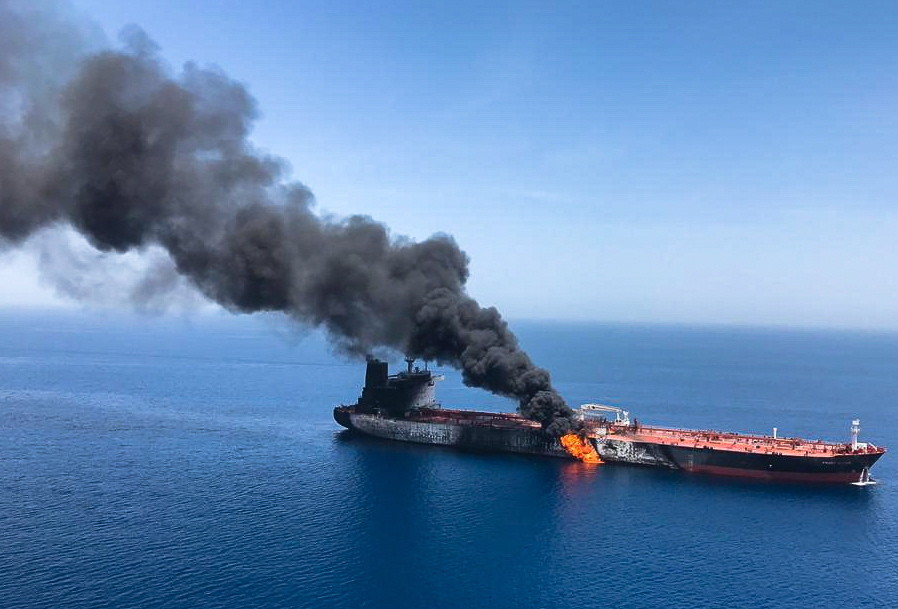Enrichment, troops heighten tensions
By Liu Xuan | China Daily | Updated: 2019-06-19 09:26

Moves come as US accuses Iran of attacking two tankers near Persian Gulf
Iran and the United States on Monday had a new round of confrontation as Teheran announced it would speed up its uranium enrichment and Washington decided to send 1,000 more troops to the Middle East.
Behrouz Kamalvandi, spokesman for the Atomic Energy Organization of Iran, said on Monday that Iran on June 27 will surpass the uranium stockpile limit set under the 2015 nuclear deal.
"Today the countdown to pass the 300 kilograms reserve of enriched uranium has started and in 10 days time we will pass this limit," he said, according to Iran's Press TV.
Kamalvandi suggested that Iran's enrichment could reach up to 20 percent, just a step away from weapons-grade levels.
Hours after Iran's announcement, the US said it would deploy about 1,000 additional troops to the Middle East to "address air, naval, and ground-based threats in the Middle East".
The deployment will also include security forces and troops for additional surveillance and intelligence gathering in the region.
Acting US Defense Secretary Patrick Shanahan said the decision resulted from the "hostile behavior" of Iran, which "threatens US personnel and interests across the region".
The move also came as Washington accuses Iran of attacking two tankers near the Persian Gulf, which Teheran has denied.
Shanahan added that the US has no intention to seek conflict with Iran and the action is to "ensure the safety and welfare of our military personnel working throughout the region and to protect our national interests".
He added that the US will continue to adjust troop levels as needed.
New path
French President Emmanuel Macron said on Monday that he regretted Iran's decision to surpass the allowed uranium enrichment limit, but vowed to find a path of dialogue and avoid escalation in the region.
Zhu Weilie, a professor at the Middle East Studies Institute of Shanghai International Studies University, said the added troops indicate US high pressure on Iran as well as strengthened monitoring of Iran.
Zhu said there is almost no possibility the two countries would trigger a war, but the concession space of both sides is very small.
Iranian President Hassan Rouhani had already warned Europe that a new nuclear deal needs to be in place by July 7 or Iran would increase its enrichment of uranium.
Iran can keep a stockpile of no more than 300 kilograms of low-enriched uranium, under the terms of the 2015 nuclear deal Iran signed with China, Russia, Britain, France and the US. The US withdrew from the deal in May 2018.
Zhu said Iran's announcement indicates its dissatisfaction with the current situation brought on by the US pressure as well as Europe's limited help.
"Although Europe has established INSTEX, no larger companies have joined the system so far, and the system has yet to take off," he said.
To save the nuclear deal, Germany, Britain and France jointly set up INSTEX, or Instrument in Support of Trade Exchanges, a special trade mechanism that would allow legitimate trade with Iran to continue without falling foul of US sanctions. The system was founded at the beginning of 2019.
Zhu said Iran is still adjusting its movement and leaving room for further negotiation.
Meanwhile, Kamalvandi said there is still time for European countries to save the nuclear deal.
"Iran's reserves are every day increasing at a more rapid rate. And if it is important for them (Europe) to safeguard the accord, they should make their best efforts.... As soon as they carry out their commitments, things will naturally go back to their original state," he said.
AP contributed to the story.
























